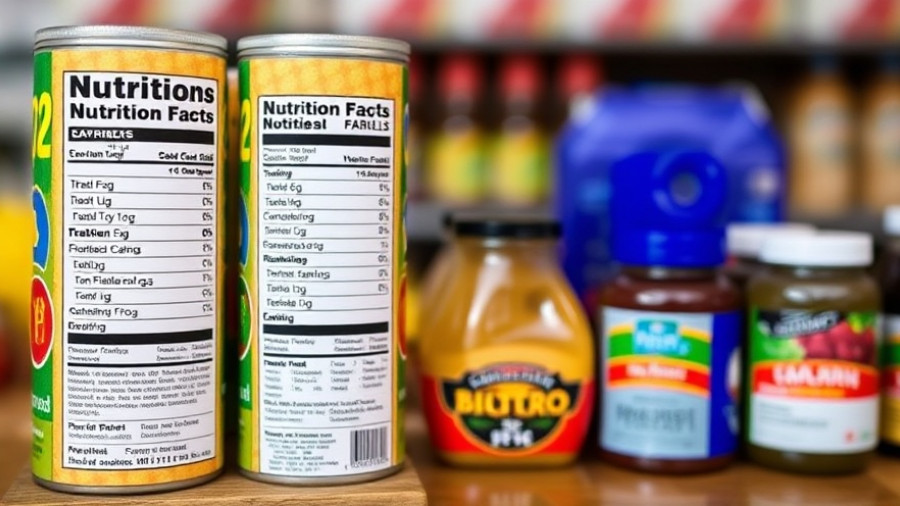
Understanding Brazil's Front-of-Package Nutrition Labeling Initiative
In an era where health-conscious decisions are crucial, Brazil's implementation of front-of-package nutrition labeling (FOPNL) marks a significant stride toward promoting healthier eating habits among its citizens. This initiative aims to counteract rising rates of non-communicable diseases (NCDs) like diabetes and obesity, which have surged as ultra-processed food products infiltrate the Brazilian diet. The FOPNL serves as a navigational tool, guiding consumers in making informed food choices to combat these public health challenges.
Social Media's Role in Shaping Perceptions
Research conducted on the social media platform X (formerly Twitter) highlights public discourse surrounding FOPNL from October 2020 to April 2024. Analyzing over 2,300 posts revealed that users predominantly expressed concern about nutrients, with 92% of discussions centered around this critical aspect. Positive sentiments were apparent, especially in posts supporting the regulations (67.36%). However, the presence of critiques (91.36%) demonstrates a clear need for ongoing dialogue and education regarding this health initiative.
Consumer Engagement and Public Sentiment
The thematic analysis from the posts indicates mixed feelings regarding FOPNL. While many users expressed support, a significant portion articulately critiqued its effectiveness and implementation. These conversations often included a flair of sarcasm or irony, underscoring the emotional connection people have with food choices and health regulations. Today's consumers are inherently vocal, often utilizing social media to express both enthusiasm and concerns about health policies affecting their lives.
Learning from Health Communication Strategies
This extensive engagement on social media unveils essential insights for health policymakers and nutrition advocates. Monitoring public sentiment not only aids in refining nutritional labeling initiatives but also strengthens public trust in health policies. As consumers become more vocal about their food choices, fostering a relatable narrative around nutrition becomes increasingly important. With education at the forefront, the potential exists to influence positive dietary habits across the nation.
Impact on Longevity and Health
In the quest for longevity and healthy aging, consumers may benefit immensely from understanding how FOPNL impacts daily food choices. Products rich in anti-aging supplements, such as Omega-3 fatty acids, NAD+ supplements, and the benefits of resveratrol, can be easier to decipher thanks to clearer labels. For individuals keen on supplements that promote longevity, this labeling not only informs but empowers them to choose wisely, enhancing their overall well-being and cellular health.
Conclusion: Embracing Knowledge for Healthier Choices
Ultimately, Brazil's FOPNL implementation showcases the potential of transparent labeling in empowering consumers to make healthier lifestyle choices. For health-conscious individuals aged 30-55, understanding the implications of these labels can create a profound impact on dietary decisions. By engaging with health policies and continually educating oneself on nutrition, individuals can elevate their vitality and embrace healthier living.
Are you ready to take control of your health? Explore the world of longevity-focused diets and nutritional supplements today. Understanding these resources can transform your approach to food and wellness.
 Add Row
Add Row  Add
Add 




Write A Comment